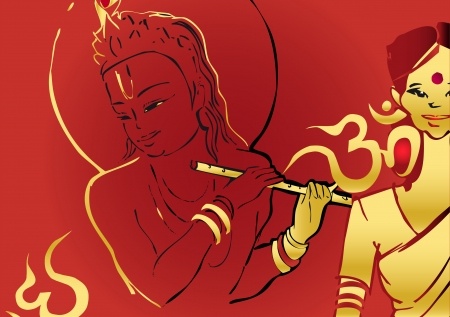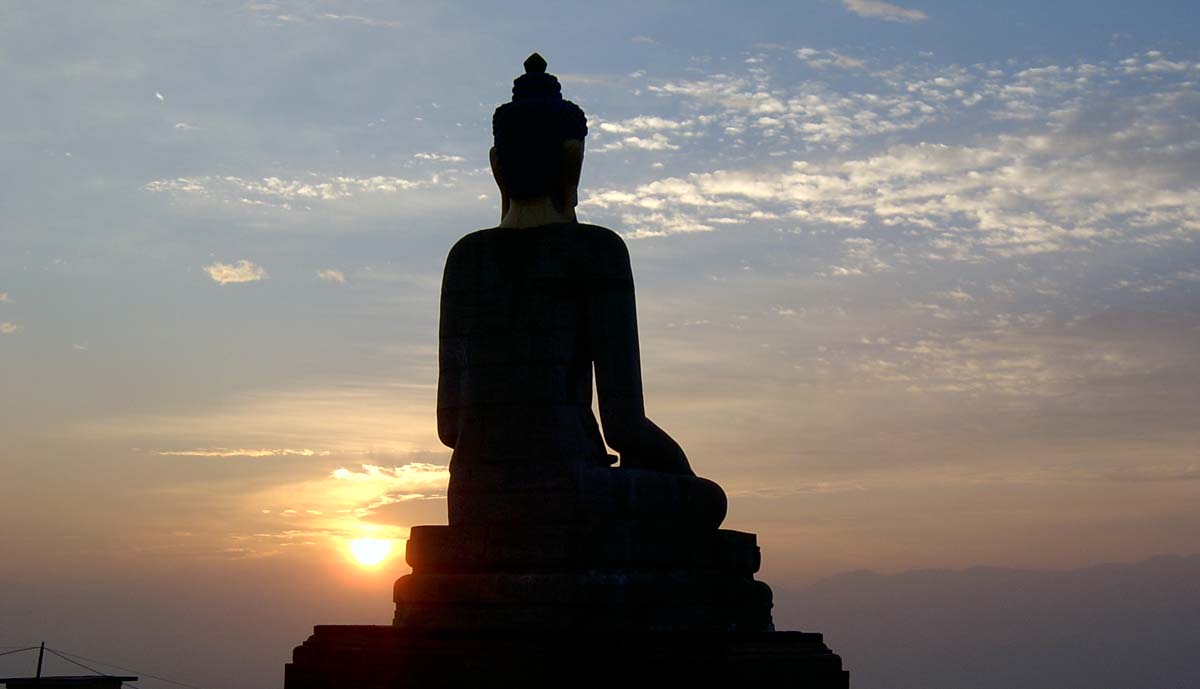Indian Philosophy
Students of Patanjali’s Yoga understand the importance of philosophical study (svadhyaya) as a necessary ethical practice (niyama) on the spiritual path. Study of the Vedas and later philosophical developments in the Vedic tradition are practices essential for the cultivation of spiritual knowledge according to the Yoga system.
The History of Yoga Philosophy
 Though the history of Yoga begins with its codification into Patanjali’s Yoga Sutras,
the tradition consists of influences spread throughout Indian philosophy. One can
observe a clear progression in the Yoga tradition from the Upanishads to
Samkhya philosophy, and the theistic developments of the Bhagavad Gita.
However, the closeness of Patanjali’s ashtanga system to divergent, or
non-Vedic trends in the history of Indian philosophy should also be acknowledged.
This is particularly so in the case of early Buddhism, whose focus on psychological
techniques and pragmatic means of mind control are very close to Patanjali’s original
method. Both philosophies believe in the removal of the senses from external stimuli
so that the ‘millstone’ of the mind can eventually grind itself away, leaving a
recognition of the true nature of existence.
Though the history of Yoga begins with its codification into Patanjali’s Yoga Sutras,
the tradition consists of influences spread throughout Indian philosophy. One can
observe a clear progression in the Yoga tradition from the Upanishads to
Samkhya philosophy, and the theistic developments of the Bhagavad Gita.
However, the closeness of Patanjali’s ashtanga system to divergent, or
non-Vedic trends in the history of Indian philosophy should also be acknowledged.
This is particularly so in the case of early Buddhism, whose focus on psychological
techniques and pragmatic means of mind control are very close to Patanjali’s original
method. Both philosophies believe in the removal of the senses from external stimuli
so that the ‘millstone’ of the mind can eventually grind itself away, leaving a
recognition of the true nature of existence.
Special Features of Indian Philosophy
Indian philosophy is unlike any other in the world for its open and pragmatic approach to thought. Unlike other religious traditions, the history of Hindu philosophy remains untroubled by the problem of ‘heresy’. In ancient times, materialists and atheists were brought into the fold and allowed to preach in temples - an event unimaginable in other parts of the world. This indicates, perhaps, the advantages of a society which prioritizes the practical results of theology above any single notion of Truth. ‘Truth’ in the history of Indian thought can take many forms, and these forms do not threaten to contradict each other.
An understanding of the philosophical trends in Indian thought is sure to deepen your knowledge and practice of Yoga - the ultimate collection of ‘skilful methods’ for physical, emotional and spiritual health.
Yoga Practitioners and students of Western Philosophy may be interested in Indian Philosophy and Vedanta retreats at The Ayurvedic Healing Village, which offers the chance to go deeply into the theory of Yoga as it was traditionally taught.






 KAIRKARE - An Exclusive Herbal Oil for Body Massage.
KAIRKARE - An Exclusive Herbal Oil for Body Massage. SPACOL - Ayurvedic Medicine for Reduction of Cholesterol fro
SPACOL - Ayurvedic Medicine for Reduction of Cholesterol fro Aarogya Herbal Tea
Aarogya Herbal Tea KAIRCIN - Ayurvedic Facial Oil for Youthful & Glowing Comple
KAIRCIN - Ayurvedic Facial Oil for Youthful & Glowing Comple The Ayurvedic Cook Book
The Ayurvedic Cook Book Kairali - The Ayurvedic Healing Village has won the World T
Kairali - The Ayurvedic Healing Village has won the World T Indian Salon & Wellness Awards 2017
Indian Salon & Wellness Awards 2017 Healing Recipes: Back to Roots
Healing Recipes: Back to Roots Yoga & Ayurveda Retreat 2018
Yoga & Ayurveda Retreat 2018 National Accreditation Board for Hospitals and Healthcare Pr
National Accreditation Board for Hospitals and Healthcare Pr Kairali’s Dusseshra and Diwali Offer, 2018
Kairali’s Dusseshra and Diwali Offer, 2018

 Looking for a health retreat or need an Ayurvedic Treatment Packages: Kairali -
The Ayurvedic Healing Village.
Looking for a health retreat or need an Ayurvedic Treatment Packages: Kairali -
The Ayurvedic Healing Village. Want to learn Yoga or join one of our yoga training programs taught by international
experts?
Want to learn Yoga or join one of our yoga training programs taught by international
experts? Find a Kairali Centre near you. Ayurvedic treatments for various disorders such
as weightloss spondylytis etc.
Find a Kairali Centre near you. Ayurvedic treatments for various disorders such
as weightloss spondylytis etc.
